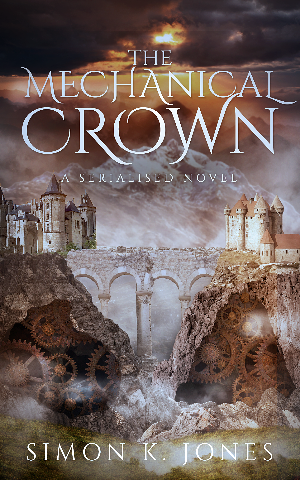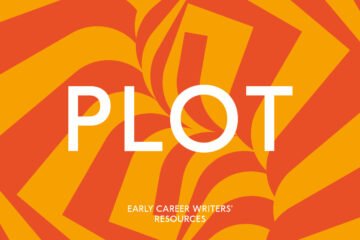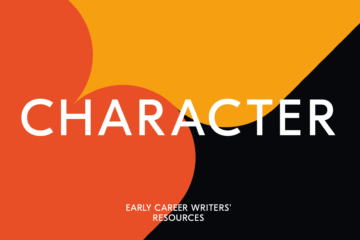Wednesday
I wake.
I glance at my notifications: there’s a bunch of responses already to the previous night’s chapter of The Mechanical Crown.
While making breakfast I take a closer look: two of my regular readers are discussing the latest character developments. They discuss among themselves — I drop by to say hello, but otherwise stay out of it.
Their exchange is a response to a tongue-in-cheek prompt I dangled at the end of the chapter. The prompts are definitely helping to encourage discussion. I only started leaving author prompts about four chapters back; I’m on chapter 83 of the book. Missed opportunity.
Wife’s birthday, so no writing tonight.
Thursday
Busy day at work. Ideas begin to percolate for the next chapter.
More positive votes for the week’s chapter, as some of the lurker readers read it. New votes on the first chapters in the book, too: new readers are still discovering the book, at a greater rate since it was featured by Wattpad.
Friday
While listening to a writing podcast on the walk to work I have an unexpected idea about the finale of the book. I’m not going to be writing that for another five months, according to the schedule, so I fire up my ‘random ideas’ document and note it down for future reference.
The all-important document pings back up to the cloud. It’s a stream of consciousness that has been growing for almost two years.
In the evening I write the notes for the week’s chapter, for Patreon backers. Always fun to talk about the form and concepts behind each chapter.
Saturday
Take my son to gymnastics at crack of dawn. While he cartwheels and trampolines I open my laptop and start writing an article about serialised writing for Medium. It’s an hour of quiet focus, even while surrounded by excited, screaming five year olds in the cavernous gymnasium.
Sunday
The next week is fast approaching. I begin to focus in on the upcoming chapter: this is when I make last-minute decisions on perspective and tone.
I already know the general direction of the story, so writer’s block and plot holes are rarely issues. The detailed plan stretches ten chapters into the story — and thus ten weeks into my future — so that I always have a road map. The characters sometimes refuse to follow it, inevitably.
Monday
Lots of new readers discovering my older books, including the How to Write Serialised Fiction guide. It needs updating but it is still helping others find out about serialised fiction publishing. One person is ashamedly admitting they write in Google Docs instead of Scrivener; I assure them that’s fine.
The day is taken up with freelance projects, leaving little brain space for fiction writing. I promise myself that I’ll take a break from the freelance work for a while after these projects are completed.
Tuesday
The time has come around again. Tuesday: publishing day.
I know what I’m going to write, I have done for weeks. I’ve been looking forward to this chapter. It changes in the writing of it, of course, becoming more interesting in the process: serialised writing requires me to stay agile if I’m to keep the story fresh.
Four days a week I work the day job. After I get home I make dinner, then get the boy to bed. I wash up. Get some essential jobs done.
It’s 8.15pm. Already getting late.
I start Scrivener and The Mechanical Crown appears on the screen. I set my minimum word target of 1,200 and begin writing. Sometimes I’ll write a brief outline of the chapter, expanding on the initial concept: the outline becomes a beat-by-beat synopsis. I find those are especially useful during complex action; less so during character-driven, quieter chapters.

The words flow. I play orchestral music, chosen specifically to fit the tone of the chapter. This week it’s Howard Shore’s scores for Panic Room and Seven. It’s a grim chapter to write. A character dies; it’s upsetting.
1,200 words is the sweet spot for online, serialised writing. Long enough to have substance, short enough to be an easy, one-session read that won’t compete with Netflix, YouTube, traditional books, games or sleep. This chapter ends up around 2,000 words, which is fine — the story makes the final decision on these things.
I do a quick proof-read. 16 years as a copywriter help my first drafts not be awful. I upload and hit publish.
Satisfied, buzzing with the adrenaline rush of my own story, I retire to bed.
Six months to go until I finish this book. It’s already over 130,000 words. It’s been easy: serialised, weekly writing is slow but sure, bypassing writer’s block and procrastination and distractions.
Tomorrow will be Wednesday, when it all begins again.



0 Comments